Photographs: Rediff archives
An allegation that the Congress party took money from the United States during the Indira Gandhi era has been made in a book to be released on Tuesday, but the party dismissed the charge as 'unsubstantiated and malicious.'
The allegation is contained in the book which is a collection of personal letters and journal entries of former US Senator and ambassador to India, late Daniel Patrick Moynihan. It is edited by Steven R Weisman, public policy fellow at the Washington-based Peterson Institute.
Moynihan, who was Washington's envoy to India during the crucial years of 1973 to 1975, refers to the then US Secretary of State Henry Kissinger's meeting with Prime Minister Indira Gandhi on October 28, 1974 in New Delhi.
Text: PTI
..
'United States supported the Congress party'
Image: Former US Senator and ambassador to India, late Daniel Patrick MoynihanPhotographs: Reuters
In his journal entry, the ambassador says Kissinger had met the Indian leader alone, except for a few moments when her Principal Secretary P N Dhar was present.
"What exactly went on I shall never know, but evidently it went well enough," he writes. Moynihan nevertheless records that Gandhi began by saying that she assumed that Kissinger wanted to talk about the nuclear explosion conducted by India in May of that year.
"He (Kissinger) said yes, he wanted to talk about the bomb. India had one now...its interest is now to see that others do not get one," he wrote.
"Turning to CIA (Central Intelligence Agency, the US spy agency) he (Kissinger) said that the United States supported the Congress party. (A fact she must know, in the past having taken our money. He would know that she would know that he would know this)," he writes in the entry.'Such derogatory interferences don't' deserve a comment'
Image: Congress general secretary Rahul Gandhi, speaks during a conference in KeralaPhotographs: Reuters
It is not clear from the book titled 'Daniel Patrick Moynihan; A Portrait in Letter of an American Visionary' what is the basis of the ambassador's account of the Gandhi-Kissinger meeting since he himself records that he was not present. At one point he uses the expression 'if I surmise correctly' about the exchanges between the two leaders.
Asked about the allegation, Congress spokesman Manish Tiwari said in New Delhi, "36 years later if somebody decides to write a book, which contains unsubstantiated, derogatory and malicious inferences, we will not like to dignify it with a comment."
'US has never sought any internal political influence in India'
Image: Indira Gandhi with her elder son Sanjay GandhiPhotographs: Rediff archives
Two months later, Moynihan wrote in a letter to Dhar that the United States saw its interest lying in the success and continuance of the 'present' Indian regime.
Recollecting that there was a time when US support to the Indian regime was quite concrete, which did not exist since 1966, he said in the letter, "Nevertheless, we still support the Congress party in more general way as any careful examination of our policies would demonstrate."
Moynihan said, "In the most generalised sense, we wish them well also. But we recognise that the Congress party has been and continues to be the government of the republic of India. A consequence of this is that the United States has never sought any internal political influence in India in return for external aid. The success of an independent, democratic India is all that we have hoped for."
'Indira Gandhi is primarily a political animal'
Image: Indira Gandhi speaks to villagers during a political rallyPhotographs: Rediff archives
The letter to Dhar came two days before he gave his farewell press conference in New Delhi on December 22, 1974. A month after arriving in New Delhi as the US ambassador to India, Moynihan in a letter to US President Richard Nixon, was very critical of the socialist policies of Indira Gandhi.
"She (Gandhi) is primarily a political animal, and carry-over of this leftist, 'anti-colonial' political culture into present day India is such that anti-American remarks become an all-purpose means of affirming ones loyalty to the socialist and egalitarian principles of the Indian constitution, a kind of loyalty oath which Brahmins doubtless find it politic to subscribe to from time to time," Moynihan wrote in his personal letter to the then US President, Richard Nixon.
'Against US wish, PMO wanted bolstered CIA presence in India'
Image: A scene during the emergencyPhotographs: Rediff archives
US wanted to pull out CIA operations in India in 1974, but had to reverse the decision just 30 days later as the Prime Minister's Office wanted the intelligence men to stay put in the country.
Not only did New Delhi want CIA to remain in India, but wanted the agency to bolster the presence here, claims the book on former US ambassador to India Daniel Patrick Moynihan, set to hit the stands in America on Tuesday.
In August 1974, Moynihan communicated to then US Secretary of State Henry Kissinger that he should 'pull all CIA operations from India' as it was of little help.
But in less than a month, he had to reverse his cable statement as the Prime Minister's Office wanted CIA to stay.
"I returned to the (US) embassy (in New Delhi) and wrote (Lawrence) Eagleburger (of the State Department) that my proposal that we pull CIA out of here was 'inoperative'. They want us. Possibly they even want more of us," Moynihan wrote in his journal on September 5, 1974 following his meeting with P N Dhar, the Secretary to the then Prime Minister Indira Gandhi and director of Indian intelligence.
Only a month earlier, after the arrest of an Indian naval officer accused of spying for the US, Moynihan concluded that the US should simply pull all CIA operations out of India, since they learn little anyway, writes Steven R Weisman, editor of the book.
An advance copy of the book, which is a collection of personal letters and journal entry of the former US Senator and American ambassador to India, was provided to the PTI by publisher Public Affairs, New York.

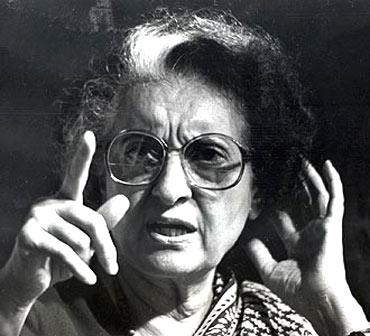

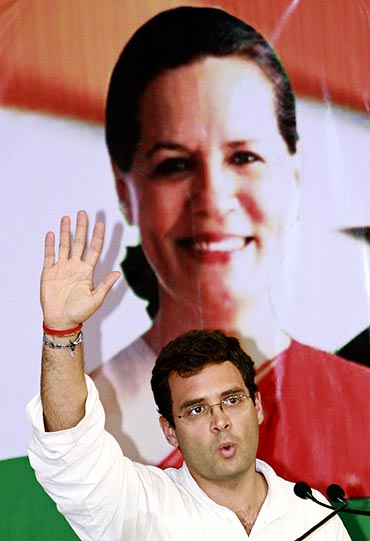
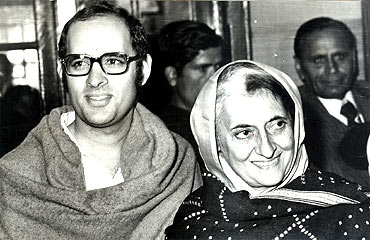
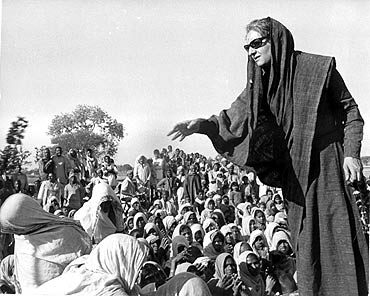
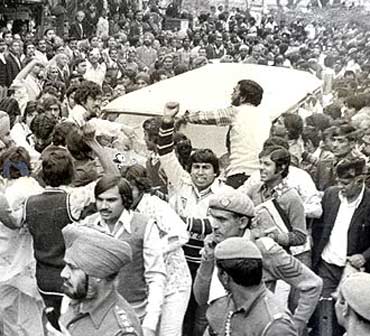
article